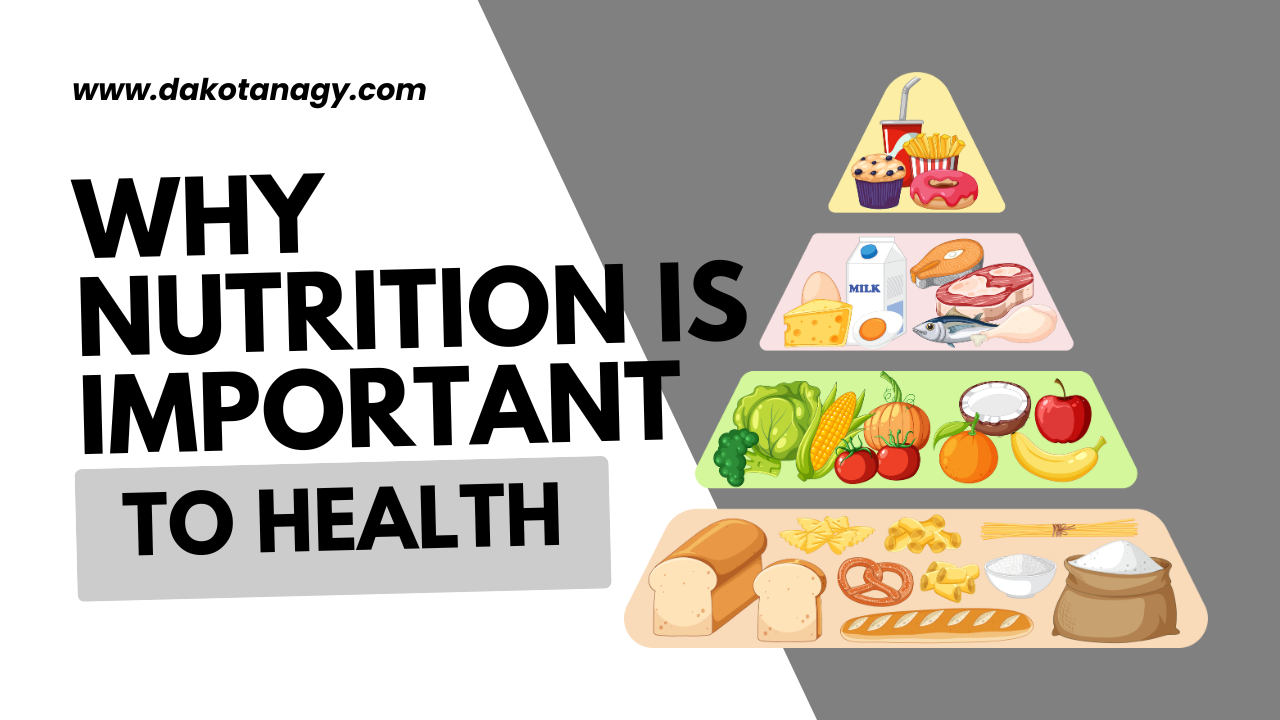Why Nutrition is Important to Health: Eat Your Way to Health!

Ever feel like you're running on fumes after grabbing a greasy breakfast on the go? We've all been there. But what if we told you that the food you choose profoundly impacts how you feel physically and mentally?
Nutrition refers to the process of your body taking in and using food for energy, growth, and repair. It's like giving your body the building blocks to function at its best.
Hi, I'm Dakota, a certified Exercise Physiologist specializing in Strength and Nutrition coaching. I'm here to explain why proper nutrition is the key to unlocking a healthier, happier you!
The Powerhouse of Nutrients
Imagine your body as a magnificent machine. You must fuel it with the right ingredients to keep it running smoothly and reduce the chances of an incident (cardiovascular disease!).
These ingredients come in the form of essential nutrients: carbohydrates for energy, protein for building and repairing tissues, fats for storing energy and supporting hormone production, and vitamins and minerals for countless bodily functions. Each nutrient group plays a vital role, and a balanced diet ensures your body gets everything it needs to thrive.
In 'Defining Macros for Beginners, ' I provided a more detailed explanation of each macronutrient. Check it out if you're interested!
Nutrition and Disease Prevention
Did you know that maintaining a nutritious diet can be a powerful way to protect yourself against chronic diseases?
By including plenty of fruits, vegetables, whole grains, and lean protein in your meals, you can significantly reduce your risk of developing conditions such as heart disease, diabetes, and certain cancers.
These foods are packed with antioxidants and other beneficial compounds that can help nourish and keep your body in good working order.
Nutrition for Overall Well-being
Proper nutrition is not just about reducing the chances of disease; it can also elevate your overall well-being!
Ever notice how you feel sluggish after a heavy meal or energized after a healthy salad? The food you choose directly impacts your energy levels.
Additionally, a balanced diet rich in whole foods can positively influence mood and sleep quality. Recent research suggests a strong link between gut health and fiber intake, and a diet rich in fiber can nourish your gut microbiome, potentially leading to improved energy and hunger levels throughout the day.
Conclusion
By prioritizing proper nutrition, you invest in your most valuable asset—your health! Remember, small changes can make a big difference. So, minimize processed foods (fun foods!) and embrace whole, nutritious foods.
Looking for a starting point to improve your diet?
Try making small substitutions such as switching sugary drinks for water, selecting whole grains instead of refined options (overnight oats vs. cereal!), and incorporating fiber-rich foods into your meals.